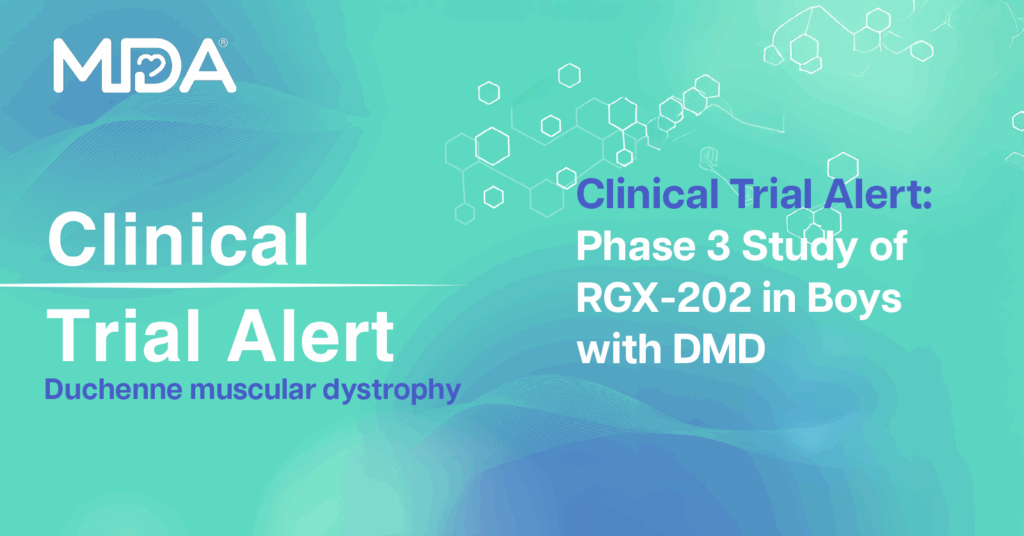
Coping With a Difficult Diagnosis: Your Emotions Are Normal
By Claire Sykes | Tuesday, April 23, 2024
A gamut of emotions hits anyone after receiving a diagnosis of muscular dystrophy, myositis, Pompe disease, myasthenia gravis, amyotrophic lateral sclerosis, or any other neuromuscular disease. The news may be hard to face, and the future might seem uncertain. At that moment, it is important to remember that you are not alone. Just as strong emotions in the face of a diagnosis are common, there are also tried-and-true strategies and a myriad of resources recommended by health professionals to help you cope with those feelings and continue to live well.
Live your emotions
“Everyone responds differently to their diagnosis, whatever is their unique new normal. There’s no typical reaction,” says Tara A. Jones, MS, LCGC, a neurology genetic counselor at the MDA Care Center at Cedars-Sinai Medical Center. “Some feel so overwhelmed by hearing the diagnosis that they’re unable to absorb the information. Or they feel anger, disappointment, or sadness. Some feel relief to know there’s a reason why they’ve had muscular difficulties, especially if they’ve seen multiple doctors. They also might have fears about their future and what a clear-cut answer now means for them.”
A common companion of all these emotions is grief. It’s a healthy response to a diagnosis that confirms and names a progressive disease that will likely lead to more physical limitations and loss. You’re mourning, and you need to take time to grieve in whatever ways you feel and express it. When you do, you can begin to accept your diagnosis, which is the first step on your path forward to making changes and setting new goals.
Shift your view
How you deal with your emotions depends partly on how you think about them. “To process your emotions healthily, you first need to accept all the negative and positive things you feel,” says Julianne Meiser, MSS, LSW, a social worker at the MDA Care Center at Children’s Hospital of Philadelphia. “Then you can learn ways to reframe perspectives you find troubling.” For example, if your negative feelings include self-blame for not recognizing symptoms sooner or potentially passing on an inherited disorder, this is an opportunity to practice self-compassion.
If you’re stuck in a particular negative emotion, Tara suggests trying a creative pursuit, such as art, that pulls you out of your comfort zone. You may think, “I’m already out of my comfort zone!” She assures, “It may feel awkward at first, but activities that stretch you creatively could similarly affect other areas of your life, including thinking of your diagnosis in a different way or getting your mind off it.”
Learn all you can
Understanding your diagnosis can help restore a sense of control. When you’re ready to dig in, the MDA Resource Center is your first stop. Contact a Resource Center Specialist by phone or email to get more information about your disease and learn about all of MDA’s offerings, from Care Centers to Community Groups. Explore these MDA resources designed to help you navigate your journey:
- Disease Fact Sheets provide overviews of symptoms, prognosis, and treatments for many neuromuscular diseases.
- Next Steps Seminars are interactive, small-group virtual sessions on navigating life transitions, including a new diagnosis.
- Access Workshops are self-paced online courses on topics such as health insurance, approved treatments, and financial independence.
- Virtual Learning Programs may be viewed live or on-demand and cover disease-specific topics as well as daily living, social-emotional well-being, caregiving, and more.
- MDA Toolkit is a collection of resource lists, checklists, and forms to help you manage life with a neuromuscular disease.
- MDA Connect offers half-hour video calls with MDA Support Specialists to help you navigate care in the MDA Care Center Network and find resources for your care.
Connect with others
It’s important to talk about your diagnosis and feelings, but Tara suggests starting by having a conversation with yourself. “Take time to collect your thoughts and feelings without any outside influence. Get grounded with yourself before sharing with others and hearing what they have to say,” she says.
Talk with people you trust — a friend, spouse, family member, or mental health professional. Here are more ways MDA can help:
- Mental Health Hub helps you find mental health resources.
- Community Groups are safe spaces to share for anyone with a new diagnosis, including pediatric (under 18) and adult groups.
- Peer Connections pairs people in the community who share the same diagnosis, as well as family members and caregivers.
You may find that your diagnosis becomes a doorway into new friendships and stronger bonds.
Be patient and realistic
You may feel that you need to jump into action, but you needn’t accomplish everything at once or too quickly. Remember, processing emotions runs on its own clock. So, set achievable goals, take it day by day, and go at your own pace. Trust that time and faith in yourself will take you where you need to go to live the most meaningful and fulfilling life.
Next Steps and Useful Resources
- Find support for your mental health needs in MDA’s Mental Health Hub.
- The MDA Resource Center can provide information on finding specialized care at MDA Care Centers and mental health services. Call 833-ASK-MDA1or email resourcecenter@mdausa.org.
- Stay up-to-date on Quest content! Subscribe to Quest Magazine and Newsletter.
TAGS: Community, Community Education, Featured Content, MDA Care Centers, MDA Peer Connections, MDA Resource Center, Mental Health, Resources
TYPE: Blog Post
Disclaimer: No content on this site should ever be used as a substitute for direct medical advice from your doctor or other qualified clinician.




